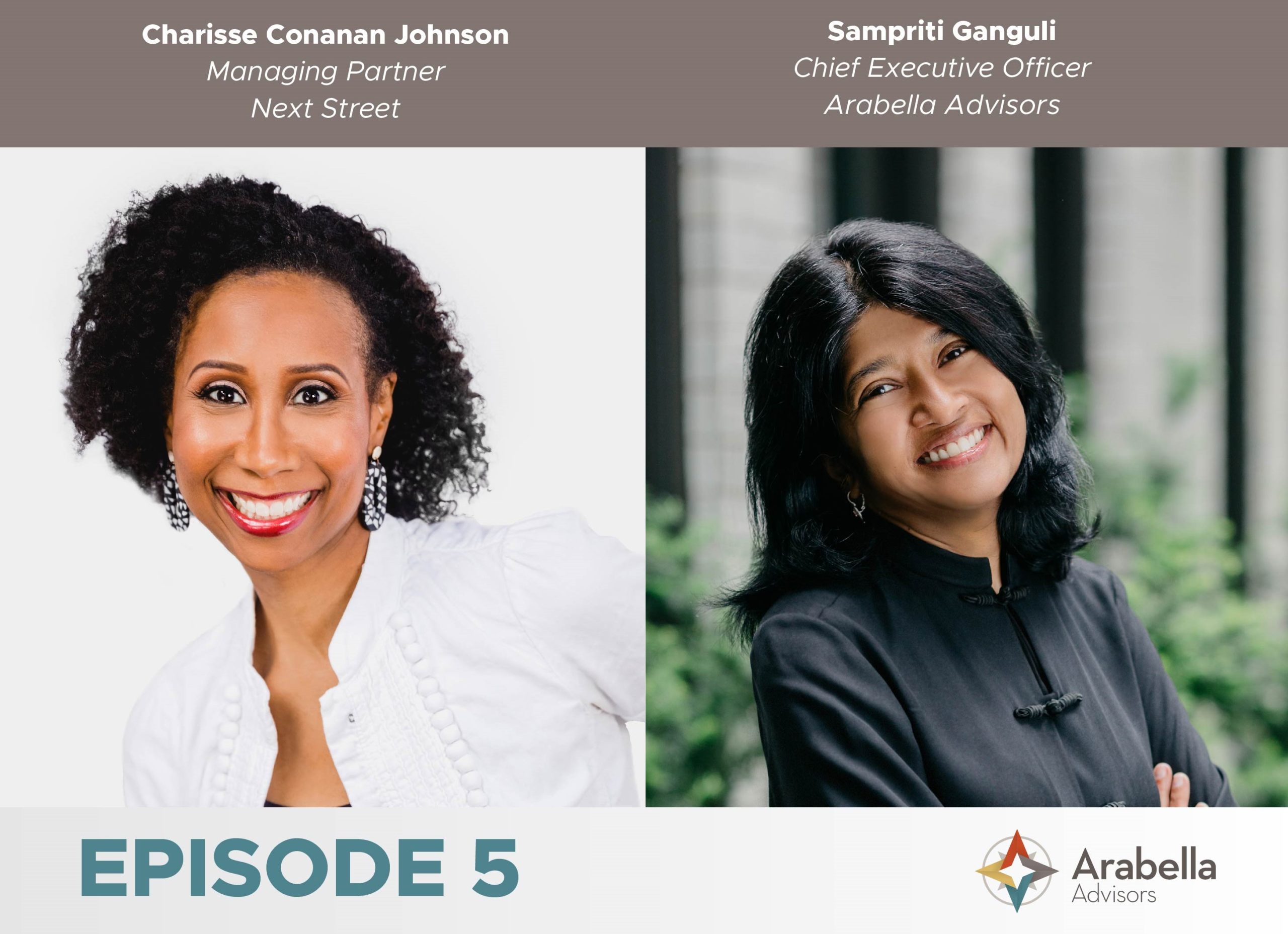Charisse Conanan Johnson and Next Street

In the latest episode of Arabella Advisors’ podcast series, our CEO, Sampriti Ganguli, spoke to Charisse Conanan Johnson, Managing Director of Next Street, about building capital for typically and systemically underserved communities and business owners. Here are some soundbites from their conversation:
- “[I was raised by] a teacher and a nurse, and they enforced in me a belief of pursuing a life of purpose. Their professions cared for and wanted the best for other people. I took that with me when I went to Yale University with the intent of being a doctor.”
- “I realized there were other ways to help people and was introduced to economics and American Studies […]. I was from a blue-collar working-class town in Long Island and was suddenly surrounded by wealthy people. I wanted to learn to pursue wealth. This led me to an early career on Wall Street and with JP Morgan. Wealth became a personal mantra for me.”
- “As I looked at what it means to be wealthy across several dimensions, I decided to find another place, and that was Next Street. […] They were at that intersection of small business, entrepreneurship, and wealth creation; and were still small enough to be focused on ‘wanting to do something special together’.”
- “[Next Street] is organized around one mission: to create a more inclusive environment for small businesses. We do this by working with large institutions, whether it be foundations, corporations, governments, all in service of mobilizing how capital, customers, and capabilities get to small businesses and entrepreneurs, especially those that have been systemically held back.”
- “Today, less than 1% of venture capital funding goes to Black founders. Today, business owners of color experience 2x the loan denial rates of their white business owner counterparts; when they do get capitol, it is at higher interest rates with all else being equal. When they do get capitol, they get less of it than their white counterparts … With stats like this, it is important to think about what can help shift the conditions holding these problems in place.”
- “I think we fundamentally need to change our approach to how dollars are allocated to small businesses and the intermediaries who support them. One of the biggest challenges that business owners of color have is the lack of access to capital from family and friends to get started. This ties back to lack of generational wealth, and how those who have generational wealth, can dominate the field.”
- “[We should] ask philanthropy, ‘How are you spending the dollars in your endowment? What are you requiring of these service organizations to help, in a way that takes off the handcuffs that tie organizations’ ability to help on capital or service provision?’”
- “We need people [like us] in this field who sit at the intersection of profit and purpose, in order to agitate and dismantle the way in which power has been misused to perpetuate racism and bad capitalism. I think capitalism is a good thing when it is used for the right purposes. […] How can we work together if the goal is justice? If the goal is impact and the greater good? […] CEOs are now questioning and demanding, how can we do both be good and do well. I don’t think these things are mutually exclusive.”
- “I have to be able to survive and exist in the current system […] And I have to be able to hack and subvert the system and have alternative ways to do stuff. You have to do both. It will take some time for the big system change we want, but I am not going to sit on my hands. I still have to do things that subvert the very systems I am trying to change.”
- “In my own family, we have a wealth circle of about 8 family members who raise and invest money together. We must not be reliant on the same systems we are trying to change. It is going to take the power of the collective to do that.”
To hear more about Charisse’s journey, the transformative power of wealth, and how the field is grappling with both profit and impact, listen to Charisse’s full conversation with Sampriti here.
